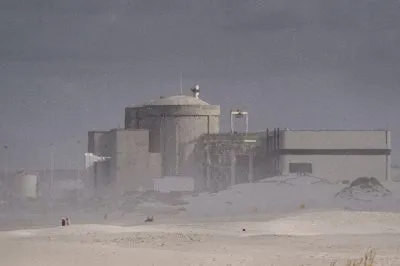Stretching through 11 countries, and serving more than 300 million people, the Nile provides freshwater for a range of diverse uses, chief among them is agriculture.
Yet the pressures of climate change and population growth means competition for increasingly strained water resources is intensifying.
With 95% of African agriculture depending on progressively unpredictable rains, the smart and sustainable use of the continent’s water resources for irrigation will not only define Africa’s future food and nutrition security, but also its adaptation to climate change, and the migration of people – both domestic and international – which is driven by both water and food insecurity.
Therefore, COP27 should ultimately be a water, food, ecosystems and climate COP to fully address the interconnected challenges that come with sustaining a healthy planet with healthy people and economies.
Understanding the complexities of how water resources are used by different actors, at different levels, will be a crucial first step in transforming the agri-food system to sustainably feed Africa’s rapidly growing population.
For example, more than 80% of the River Nile’s flow originates from rainfall on the Ethiopian highlands, yet the river itself, and the actors who depend on it, stretch far and wide.
Ultimately, different actors with different needs and objectives, sometimes thousands of miles apart, can still come to rely upon the same resource. These can range from farmers and landowners at the local scale, to irrigation system managers, to ministries and governments at the regional and national scale, all of whom depend upon the same resources.
With this in mind, countries need to take steps to better ensure that water for food production, in particular, does not come at the cost of other needs of households, industries, energy, and other sectors.
Firstly, governments must ensure that they are fine-tuning water management policies according to the full range of needs of different sectors. For instance, a cap on the amount of water that a farmer can extract for irrigation fails to consider that much of this water will ultimately end up back in the environment, due to the low water-use efficiency of irrigation.
Consequently, more effective policies might include caps on water consumption, which more realistically manages water use in agriculture, and ensures farmers are not faced with misdirected guidelines.
Secondly, water agencies, utilities and development organisations must also make full use of breakthrough technologies that can allow them to account more accurately and efficiently for water usage.
For example, we can improve our accounting of the world’s water resources, thus assessing whether they are used sustainably, by taking more advantage of high-tech satellite information. IWMI’s partnership with Digital Earth Africa, as just one example, provides open-source water data to better manage and account for resources across the African continent.
Finally, as existing water resources come under increasing strain, countries must also ensure that they are sustainably tapping into underexploited resources. For instance, groundwater is not well-managed or utilised in Africa, but by sustainably increasing access and use, countries can both diversify their water sources, and increase their resilience as a result.
The irrigation potential using renewable groundwater in Africa is significant, and more than 40% of the continent’s cropland could benefit from the resource sustainably, often together with alternatives like treated wastewater.
More groundwater irrigation could considerably increase food and nutrition security across the continent, while also managing the risks related to increasingly unreliable rainfall due to climate change, and ultimately benefiting hundreds of millions of rural people.
While the importance of water extends to all of us, scientific understanding of these complex interdependencies across scales and the impact of different water-using sectors is surprisingly under-developed and under-appreciated.
Just as recognising that what happens upstream has an impact downstream, developing effective policies that account for how different actors manage common water resources can deliver the triple benefits of feeding more sustainably, ensuring sustainable economic growth, and building greater resilience to climate change.
Stefan Uhlenbrook is Strategic Program Director, Water, Food and Ecosystems, International Water Management Institute (IWMI)
Want to continue reading? Subscribe today.
You've read all your free articles for this month! Subscribe now to enjoy full access to our content.
Digital Monthly
£8.00 / month
Receive full unlimited access to our articles, opinions, podcasts and more.
Digital Yearly
£70.00 / year
Our best value offer - save £26 and gain access to all of our digital content for an entire year!

 Sign in with Google
Sign in with Google 




